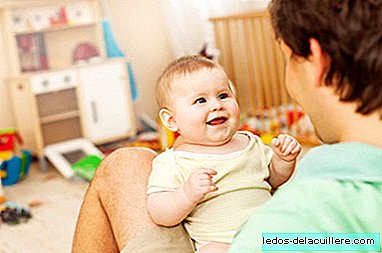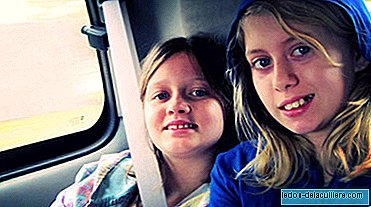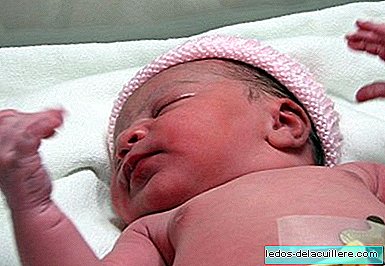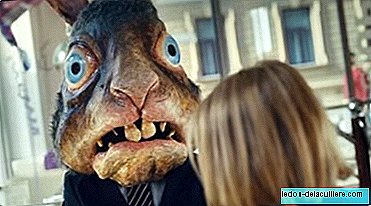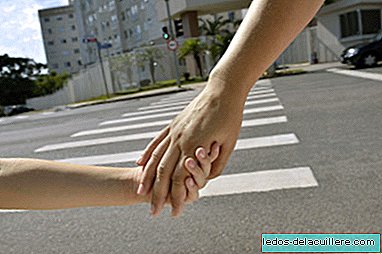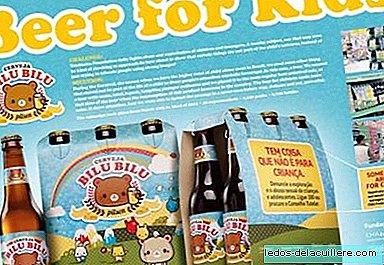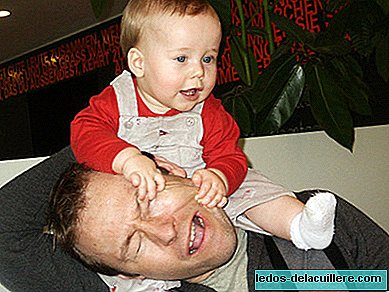
Three days ago we explained that a fifteen month old boy has been expelled from the nursery for a week for biting his classmates. We all criticize the measure, readers included (I say readers and non-readers because you are a majority), because it is clear that expelling a child will not teach him to stop biting.
That a child of one or two years bites or hits other children is normal. It usually happens because at home they are related to the child (not biting him, but hitting him at some point), because the child decides to try that relationship strategy on his own initiative and sees that it works or, and this is the most common, that He doesn't even think about it or doesn't know how to better express what he feels, his frustration or anger, and he makes use of these strategies.
That it is normal (and with normal I do not say that they do it all) does not mean that there is nothing to do, because hurting is not a healthy or logical way of relating. That is why today we will try to explain what to do and what not to do if our child bites or hits.
Eject a week
The first of the options, which is not the best, is the one adopted by the director of a nursery and by the City Councilor for Education, both of whom have few educational resources when shooting a mosquito with a cannonball. The measure is excessive, look where you look and that is why the other day we dedicate an entry and the consequent criticism.
Do nothing, they are children's things
As we have said, it is normal for children to hit and bite because they are beginning to interact with other children and other people and simply do not know very well how to do it. Sometimes they do it because they do and sometimes they do it with an intention, such as showing anger or trying to get something (a toy they want to take away or a toy they want to recover because they have taken it away).
On several occasions I have heard parents say that you have to leave them, which are children's things and that, when they grow up, they will stop. Sometimes this laissez faire (let do) responds to the theory that says children should learn to resolve their conflicts for themselves and that it is better not to intervene.

My opinion in this regard is that everything depends on the age of the children and their ability to express themselves and understand what is right and what is not correct. If a child of one or two years is biting or hitting, it cannot be ignored because if no one censors his way of acting, he will believe that it is another way of relating to children who, in addition, gives good results many times because they get what they want. If they are older and are able to reason and express in words what they feel and think if they can be left to find solutions, but if they are sticking or biting, which is the case at hand, I would always intervene: Zero Violence.
Do the same to see that it hurts
Another option is that of do the same thing the child is doing so he sees that he is hurting. I have read some advice from professional psychology theorists and I have also heard it from some grandmothers ("so that you don't touch the thread box, where there are needles, you prick it with a needle in your hand ... so you'll never want to touch it again) ").
It is a resource that could work if the child is able to understand the comparison "I hit you, which is the same as you do" and if he is able to think "it hurts, I will not do it to anyone else". The problem is that I might not understand it or even understand it backwards "my parents hit me, I can also hit", "my parents relate to me hurting me, I can do it too."
Be that as it may and as it happens, I don't think it's a good option if we're saying that we want to keep violence at bay. I don't find it respectful to teach not to bite or hit by biting and pasting. If we say zero violence, then zero for everything.
Punish him: "we are going home"
Something very used too, because it is what is most often done and because we as children used to suffer similar scenes (punishment is a deeply rooted tradition) is the resource of punish the child. Many of the scenes usually occur in the park or similar places, which is where children share space with other children and with parents at the same time. Your child hits or bites and you say that next time you go home. Hit and bite again and you execute the threat, you take it and go home.
The problem is that this consequence carries many implicit things. If a child is small enough not to understand that hitting or biting is wrong, they may not understand that going home is a consequence of their actions. Children do not have too much notion of time and some days they can spend the whole afternoon in the park and make them short and others be a little while and get tired right away. How does the child understand that he is going home because he has done something? Can't you just understand that it's time to leave?
Let us say that he does understand that after hitting or biting "we are going home", can the child not think of another day that when he hears "we are leaving" he has the right to hit or bite? "Total, if we're leaving ..." What's more, the day I don't hit or bite and mom says "we're going home", can't she think we're punishing her?

Another problem, if you have more than one child, do you take them both home? No i guess we will have to invent another punishment that will probably have other consequences and conditions to assess. That is why I always say that we cannot apply the motivation, the consequences cannot be invented by us. The consequences of an act must be the real ones, which are: "Hitting children is wrong because you hurt them. "Hurting children is wrong because you make them feel bad." "If you hit the kids they won't want to play with you." "Maybe one day a child older than you will hit you too ... I don't think you like it, as the children you hit (or bite) don't like."
Put emotions to the acts: dialogue and patience
In the line of the last paragraph is what I believe is the ideal solution. Put emotions into your actions, give words to what you have done. Children do not usually start playing together until they are three years old, at which time they begin to know the world of emotions and begin to be somewhat more rational. Also at that age they already have more vocabulary and are better able to understand what we say and put words to what they feel.
Until that moment they can push, hit or bite, simply because they don't know how to express their anger in any other way. Imagine that you cannot speak, that you cannot tell someone how angry you are… is it not more than likely that you will give him a good push to let him know? They can even do it because, as we have said, they are trying "to see what happens".
We are the adults and in those moments we must intervene to show you another way to do it. We put words to what is happening "I see that you are angry because the toy has been taken from you", "right now you would like to recover it", "I see that you are angry because you want to play with that child's toy" and then we explain the following: "We both go together to ask him to give it back to you," "but the toy is his ... all we can do is ask him if he lets you." Obviously add the most important thing, the "don't hit, that you hurt", "don't bite, that the kids won't want to play with you", etc.
This is not a method for the child to stop hitting. ipso facto, this It is a way of acting with a cold head and doing things with patience and calm and knowing that the results come in the long term. Dialogue and patience are framed in a way of raising children more respectful than the known (where the solutions mentioned above would come in), because by respecting them we can teach them to respect and because they will not do things to avoid punishment or obtain a prize , but because they really believe that things are not done that way.
Meanwhile…
While the child grows, matures, learns and reasons our message (which we will repeat once and a thousand times, probably) our role is to act as a guardian, or as a father, which becomes the same. If we know that our son bites or hits, a thousand eyes with him, if we know that you do it always or very often, it may be useful and necessary prevent me from playing with other children: either we don't go to the park or we go to the park and we play with it to avoid problematic situations. There will be time for me to play with other children.
Photos | Lars Plougmann, lupinoduck, clairity on Flickr In Babies and more | Do we teach them to hit without realizing it ?, Punishment is an uneducated method, "Natural consequences are not punishments": interview with psychologist Teresa García


